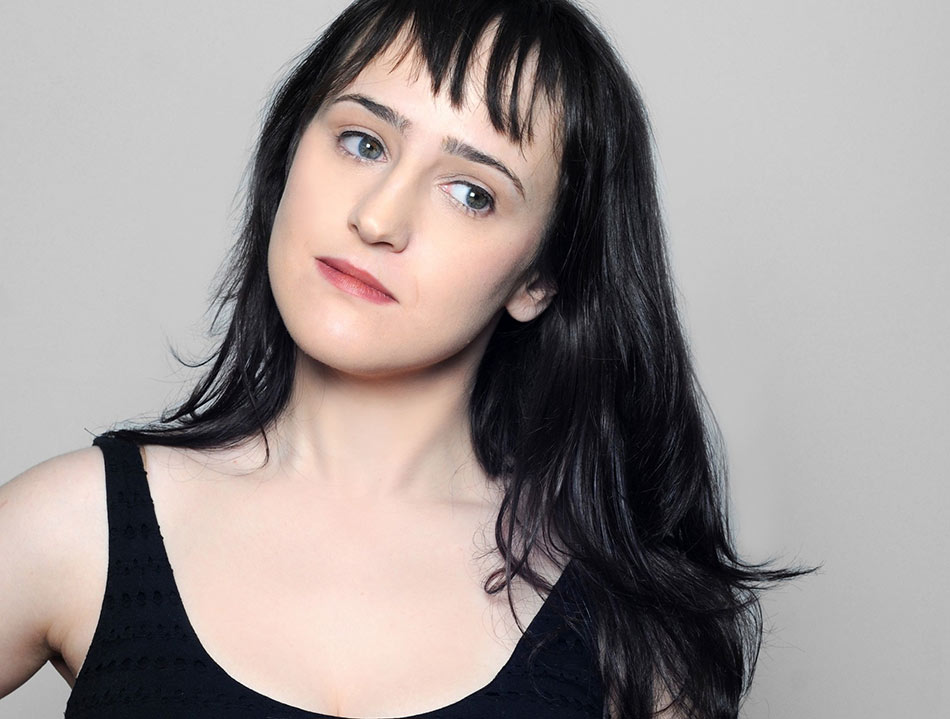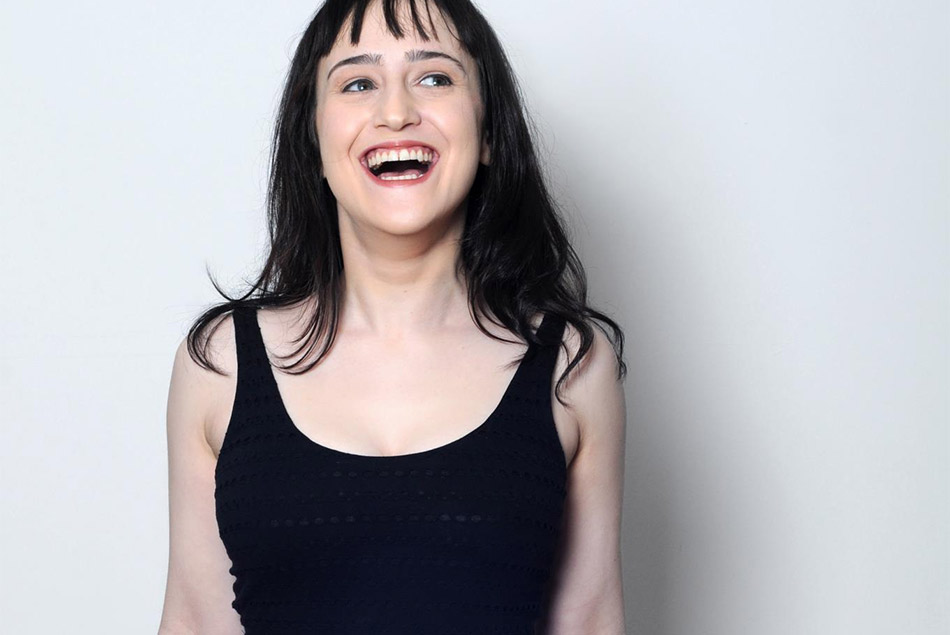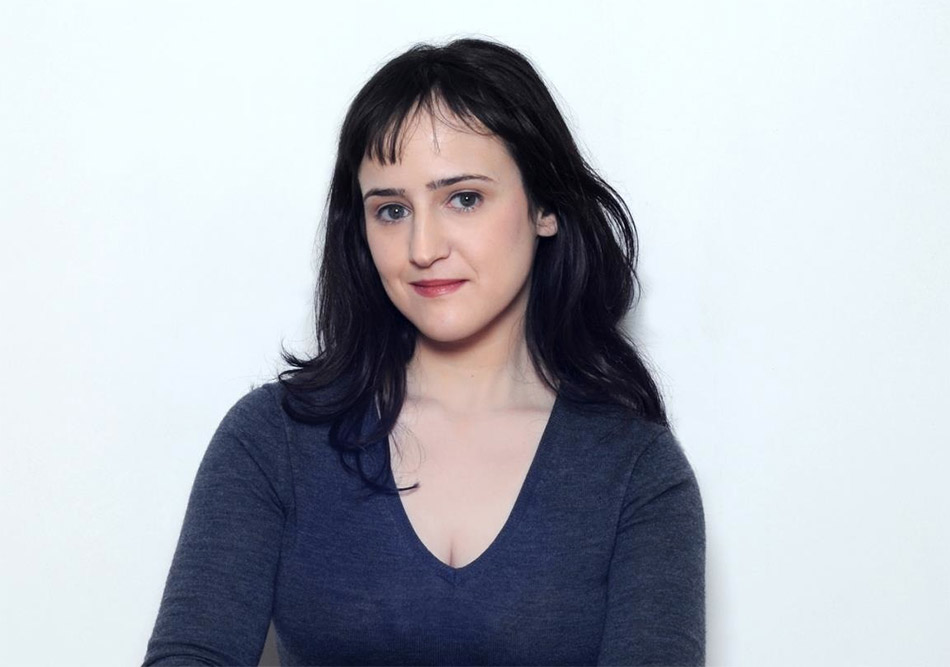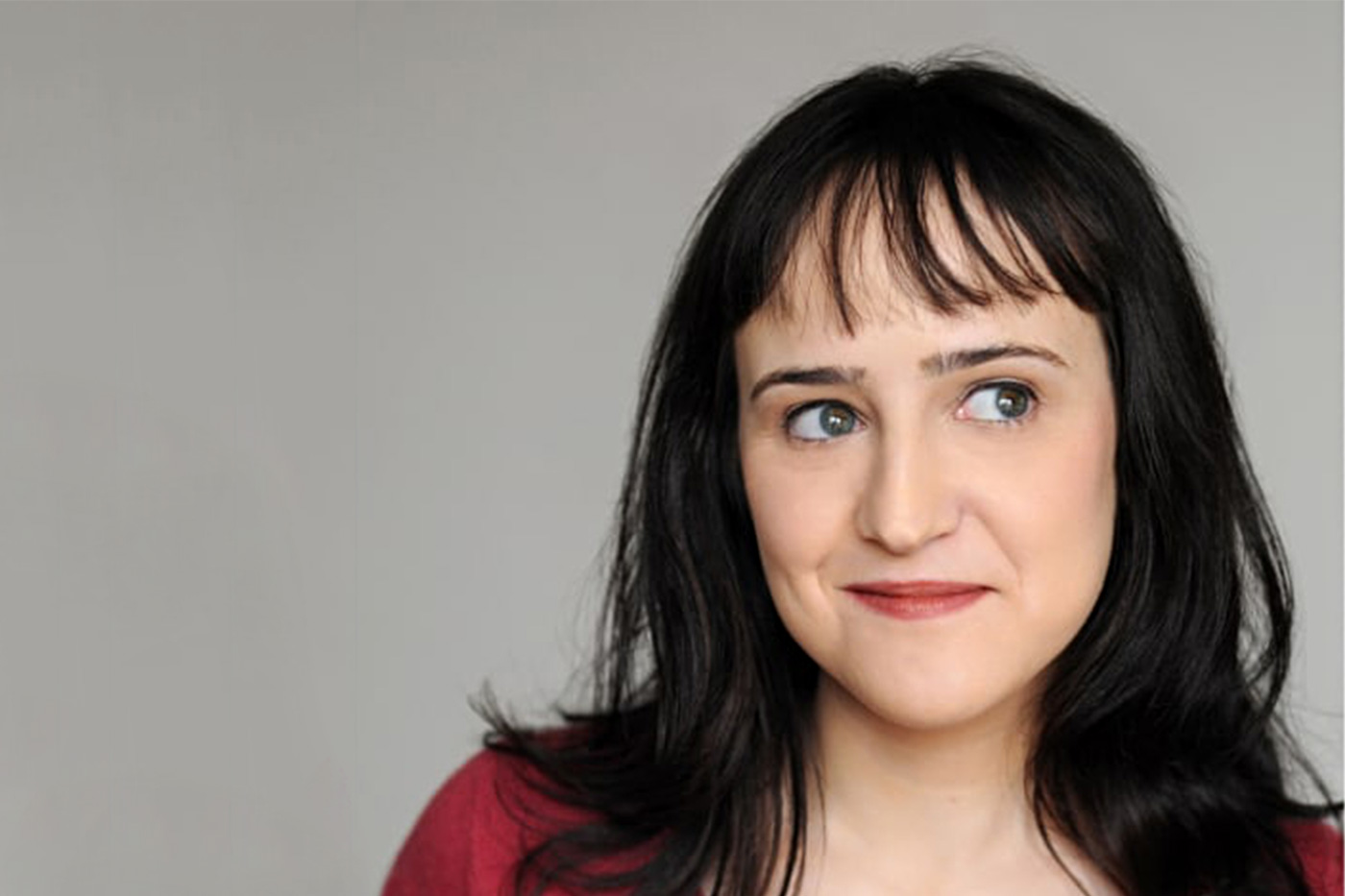It’s a pretty rare thing for someone to be so talented that you can be a fan of theirs for one thing, and then become a fan all over again for something else. Yet, somehow, Mara Wilson has amassed two huge fan bases for two completely different reasons. At age six, she starred alongside Robin Williams and Sally Field in Mrs. Doubtfire. And two years later, she starred in Danny DeVito’s Matilda. It wouldn’t be an overstatement to say that at least one of those appears on many a list of favourite childhood memories.
Yet Wilson left Hollywood just before she reached her teens. She has since majored in drama at NYU and is now an acclaimed writer. Her blog, Mara Wilson Writes Stuff, is filled with posts that are so thoughtful, so honest and so poignantly expressed that it’s hard not be taken by them – particularly some of her thoughts on why she left acting.
I spoke to Wilson regarding some of these thoughts, and her play Sheeple, which got its first run at the New York Fringe Festival last August.
Given that drama is not a million miles away from where she started, I asked Wilson if it was always part of her plan to follow that path:
“When I was eleven, my film career was slowing down, thanks to puberty, and I started focusing more on school. My school offered classes in improvisation and sketch comedy – a sign I lived in Los Angeles – and taking them was one of the best decisions I ever made. Being onstage felt so much more real and alive than film had, and I started seeking out more opportunities to perform onstage. There wasn’t much theatre where I lived, so I had to make do with improv, school drama productions, and choir. After two years in a public school, I transferred to a boarding school for the visual and performing arts – Idyllwild Arts Academy – as a theatre major.
Film is a director’s medium, but theatre is an actor’s medium. All great actors start in the theatre and long to go back to the theatre.
I distinctly remember one of my drama teachers there saying ‘Film is a director’s medium, but theatre is an actor’s medium. All great actors start in the theatre and long to go back to the theatre.’ It seems a bit grand and hyperbolic to say ‘all’, but most actors I know who’ve done both do say theatre is much more exciting and rewarding. I loved Idyllwild, and I loved how we studied so much more than acting. We had classes in theatre history, music, dance, stage management, directing, building sets, making costumes … I soon realised I loved being backstage as much as I loved being onstage.”

While it seems that Wilson was perhaps always destined for the stage, she said that she had terrible stage fright when she was a child:
“Being onstage was so much different than working with a crew and a camera: onstage, you’re on your own. It seemed terrifying, but also exhilarating.”
Wilson, however, started to find film acting tedious as she got older:
“I was the one child in the world who was in Hollywood but wanted to run away and join the theatre!”
Wilson’s play Sheeple centres on that uncertainty in a teenager’s life when they are not quite sure of their place in the world. Given that it’s supposedly very common for playwrights to place even a small bit of themselves in their work, I thought it was obvious to ask if Wilson put a bit of herself in the play:
I was a stubborn, cynical teenager, and while I had no idea what I was going to do with my life, I was convinced I was smarter than everybody else.
“There is definitely a lot of me in Sheeple. I was a stubborn, cynical teenager, and while I had no idea what I was going to do with my life, I was convinced I was smarter than everybody else. Watching Sheeple was a bit like seeing the various voices in my head come to life and argue with each other.
There’s also no way I could have written Sheeple if I had not grown up with three older brothers. The main character is a teenage boy, as are most of the others. I know it’s a bit strange coming from a female playwright, but consider that from the time I was five until I was fourteen, there was always at least one teenage boy in the house. It’s what I heard and what I know.”
While it didn’t happen overnight for Wilson, she did seem to go from having no idea what she was going to do with her life to finding success as a writer. She seems to have found her path to success relatively quickly. Although she talks about the support she got from her family – with whom she’s close – the path sounds like it was a bit solitary, but not all that difficult or long:
“Ultimately, though, it was my decision, and not a very difficult one; I had always loved writing and felt drawn toward it all my life, even when I was acting. When people asked me if I wanted to be an actress when I grew up, I would say, ‘No, I want to be an author.’”
Speaking of family: Wilson’s mother died from cancer while she was young – while Matilda was in post-production. Given the guidance she has missed from her mother in those life decisions, Wilson suggests that perhaps she should have stopped acting after Matilda:
Instead, I continued acting more out of inertia than passion.
“It would have been a good idea to give me time to relax and work through my grief. Instead, I went straight to A Simple Wish and continued acting more out of inertia than passion.”
While Wilson is definitive about how certain she was in her decision to choose drama and to become a writer, she isn’t so confident about her actual work. Although she finished Sheeple in 2010, it wasn’t entered into New York’s Fringe Festival until last year. Of course there are a multitude of reasons for delays in any major project – but I wanted to know if there was some hesitation on her part:
I just wish people would think before they tweet, really. But that probably will not ever happen.
“There definitely was some hesitation on my part. I’m an anxious person by nature, and being in the public eye comes with so much baggage. My first few years after NYU were spent trying to figure out what, exactly, I wanted to do, whether I wanted to continue acting or pursue writing or do something completely different. I worked on a lot of small theatre productions and met with a weekly writing group before deciding writing was what I really wanted to do. In late 2011, I finally started my blog and Twitter account. It was nerve-wracking, but my friends were very supportive, and I soon acquired a kind of online cult following.”

Since 2011, Wilson has amassed 70,000 followers on Twitter. Wilson is remarkably funny on Twitter, although many of her tweets stem from a faux-frustration about people bringing up things from the movies she was in so long ago. Commenting on this, Wilson said:
“The frustration is played up for comic effect, though I think anyone would get annoyed answering the same questions over and over again. It’s why I wrote the FAQ on my website. I just wish people would think before they tweet, really. But that probably will not ever happen.”
I myself came across Wilson through Twitter, and have since started reading her pieces regularly. Given that Twitter is proclaimed as this kind of new media that is changing pretty much every landscape there is, I wondered how much of an impact Twitter has had on her work:
“I’m pretty sure only a small fraction of my Twitter followers actually read my tweets. Most are just following me because I was Matilda. Though every now and then, I’ll get a response saying ‘I love you as a kid, but you’re so funny now!’ or ‘I didn’t know you were an actress, I just followed you because I thought your tweets were hilarious.’ Those are always nice to hear, though ‘Matilda was my childhood!’ gives me a warm fuzzy feeling, too.”
Coincidentally, I also recently came across the former child actor, Lisa Jakub, online. She starred alongside Wilson as her older sister in Mrs. Doubtfire. Jakub has also left Hollywood, and is also a writer. I asked Wilson if she thought this sounded eerily similar to her own life path, and whether she has been in touch with Jakub lately:
“It does sound familar. Lisa and I have a lot in common and always have: I frequently refer to her as “my big sister.” We caught up about a year ago and it was like no time had passed at all. There have been many strange coincidences in our lives, so it was no surprise when I heard she was writing now, too. She’s a very poetic, evocative writer, and has always been brilliant and thoughtful, so it’s exciting to see what she comes up with.”
Jakub and Wilson are both accused of some sort of running away from their pasts, although Wilson recently seems to have embraced her past a bit more:
People often accuse me of running away from my past, but it’s really just that I’d like some acknowledgment for my adult achievements, too.
“People often accuse me of running away from my past, but it’s really just that I’d like some acknowledgment for my adult achievements, too. I’m sure Lisa feels the same way. I think there’s a time like that in every child star’s past, where they do try to distance themselves, but it’s not entirely possible. Though when I do talk about it, people criticise me for that and tell me I’m dwelling too much on the past! It’s a difficult balance.”
When I asked if she had any advice for drama students, Wilson was insistent about one thing – acting isn’t what it’s cracked up to be:
“This may be controversial, but I wouldn’t advise anyone to become an actor. It’s an extremely difficult life: there are always fewer job opportunities than people seeking them out, there’s a lot of focus on appearance – even on the stage, where voice is more important – and there’s a lot of rejection. But I understand the rush of being onstage, and the joy of losing yourself in a character, and I know once you’ve done it, nothing else compares.”

Later on, Wilson was also pretty insistent that you can’t only want to be an actor because you want to be famous:
If there comes a time when you realise you can live without acting, as there did for me, you should live without it.
“Not only are there are much easier ways to become famous these days, but very few people actually like being famous. Do it because you love the work so much you will sacrifice time and energy and sanity to do it. If there comes a time when you realise you can live without it, as there did for me, you should live without it. If you can’t live without it, you will find a way, but remember you’re doing it because you love it, and keep in mind your success might look much different than what you had originally imagined. It might be as part of a small Shakespearean troupe or an experimental theatre company. A successful actor is not necessarily a film star or an Olivier-winner – a successful actor is a working actor.
Finally, I asked Wilson what she was working on at the moment, given that she’s got both fiction and non-fiction books in the works:
“It’s a series of short essays and stories from my life, all about being a little young and a little out of place. I’d love to write more plays, but don’t have any I’m working on at the moment. The book is taking precedence right now, and I do have a fiction book I’d like to write, and maybe a screenplay. I hope to write more dramatic works, though: playwriting is where I started, and theatre will always feel like home.”







